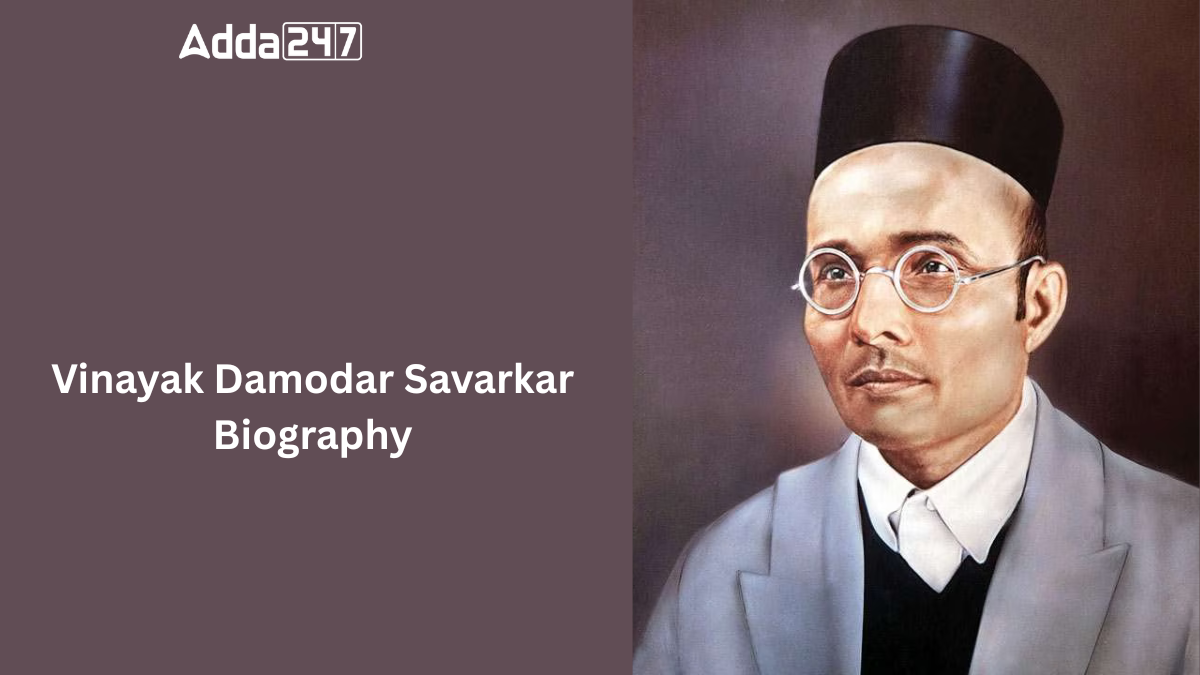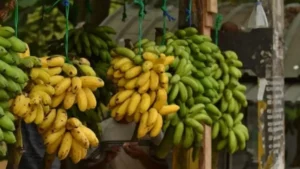Vinayak Damodar Savarkar, also known as Veer Savarkar, was an Indian freedom fighter, writer and politician. He was born on May 28, 1883, in Bhagur, a village in Mahabharata. He played an important role in India’s struggle for independence and later became a leader of the Hindu Mahasabha. His life was full of struggles, revolutionary activities and strong political beliefs. He passed away on February 26, 1966.
Early Life of Vinayak Damodar Savarkar
Vinayak Damodar Savarkar, also known as Veer Savarkar, was born in India and became interested in revolutionary activities from a young age. When he was 12 years old, during Hindu-Muslim riots, he led a group of boys to attack a mosque in his village. In 1903, along with his brother Ganesh Savarkar, he formed a secret revolutionary group called Mitra Mela, which later became Abhinav Bharat Society. This group aimed to end British rule in India and promote Hindu pride.
Role of Veer Savarkar in the Freedom Struggle
Savarkar went to London in 1906 to study law. During his time there, he helped train Indian revolutionaries in secret warfare tactics, learning from Russian revolutionaries in Paris. He also wrote a famous book, “The Indian War of Independence, 1857,” which described the 1857 revolt as India’s first major fight against British rule.
In 1910, British revolutionaries arrested him and brought him back to India, where he was convicted of planning a British official’s assassination. He was sentenced to life imprisonment and sent to the Andaman Islands’ Cellular Jail, known for its harsh conditions.
Later Political Life of Veer Savarkar
Savarkar was released in 1924 and later joined the Hindu Mahasabha, a political group that promoted Hindu nationalism. He played an important role in spreading the idea of Hindutva, which emphasized India as a Hindu nation. He also supported the idea of Sikhistan in Punjab.
He led the Hindu Mahasabha from 1937 to 1943 and opposed the Quit India Movement launched by Mahatma Gandhi. In 1948, after Gandhi’s assassination, he was arrested but later acquitted due to a lack of evidence.
The Shuddhi Movement
Savarkar was a key supporter of the Shuddhi Movement, which aimed to bring converted Hindus back to Hinduism. He believed that changing religion was like changing nationality and worked to stop forced religious conversions.
Imprisonment and Ideology
During his imprisonment, Savarkar wrote “Hindutva: Who is a Hindu?,” which became an important book for Hindu nationalist ideology. After being released in 1937, he focused on promoting Hindu unity and removing untouchability.
Famous Books of Veer Savarkar
Savarkar was a great writer and poet. Some of his famous works include:
- “The Indian War of Independence, 1857” – A book on the 1857 revolt
- “Hindutva” – A book on Hindu identity
- “Mazi Janmathep” (My Life Sentence) – An autobiography
- Poems written in Andaman Jail – He wrote poetry on prison walls due to a lack of writing materials.
Death of Veer Savarkar
On February 1, 1966, Savarkar decided to fast until death (atmaarpan), refusing food, water and medicines. He believed that once a person had fulfilled his life’s purpose, it was better to end life on one’s own terms rather than waiting for a natural death. He passed away on February 26, 1966, in Mumbai.



 Which Lake is known as the Jewel of Udai...
Which Lake is known as the Jewel of Udai...
 Which is the Largest Banana Producing St...
Which is the Largest Banana Producing St...
 Which is the First Tiger Reserve of Utta...
Which is the First Tiger Reserve of Utta...








